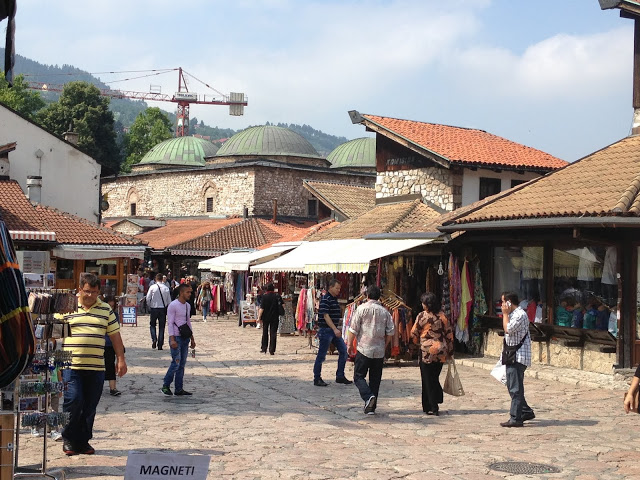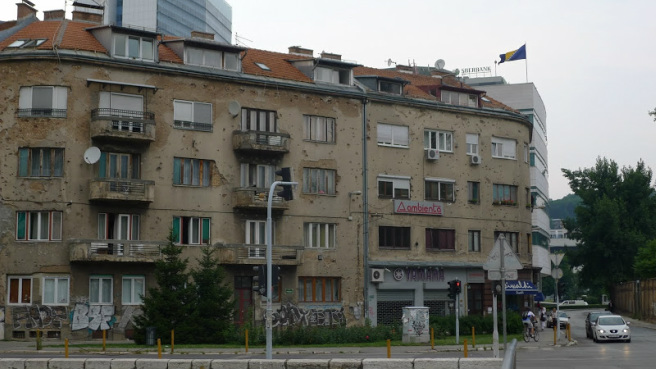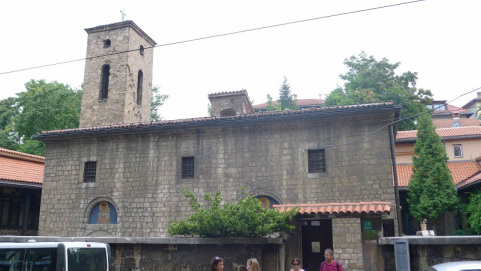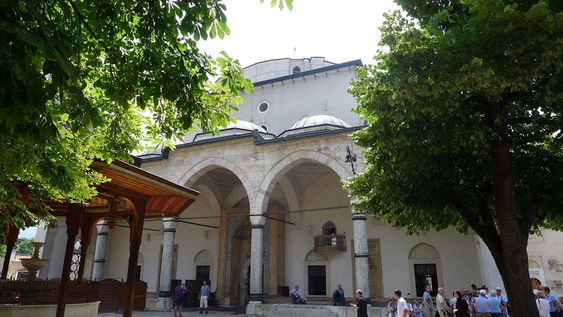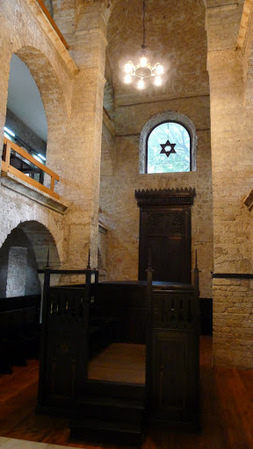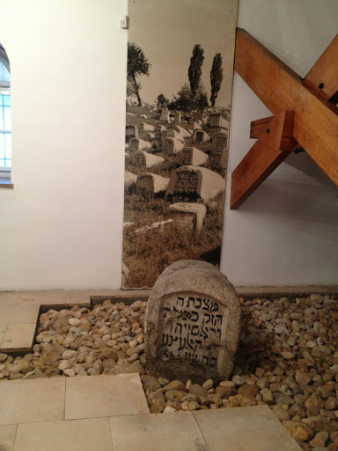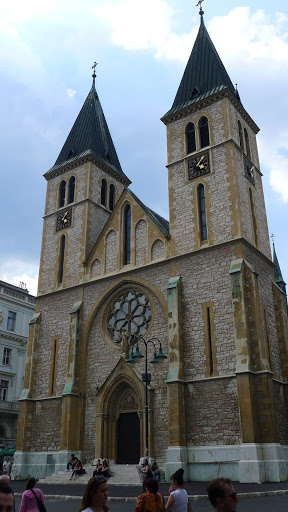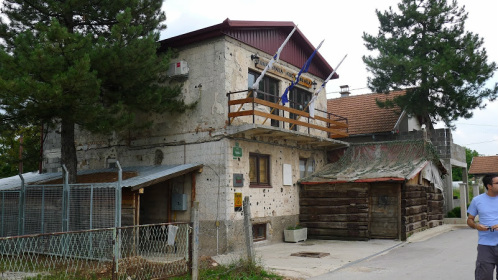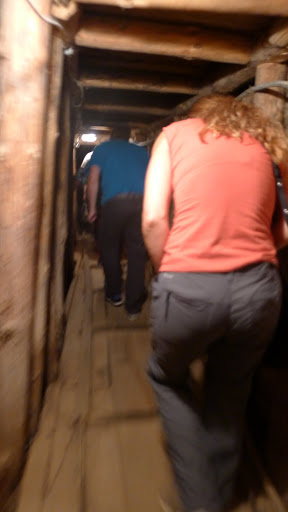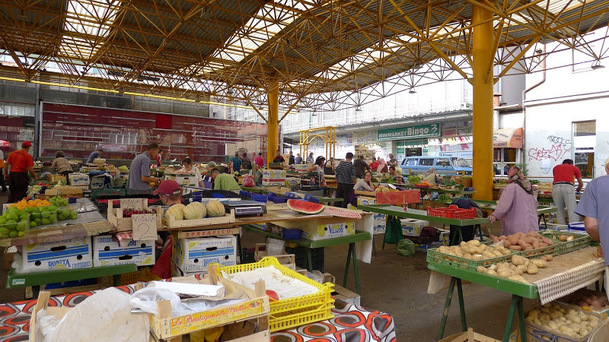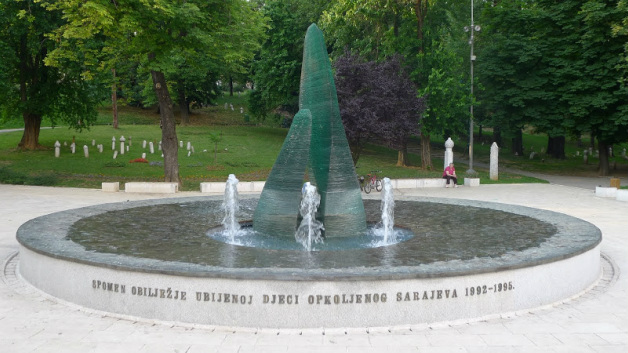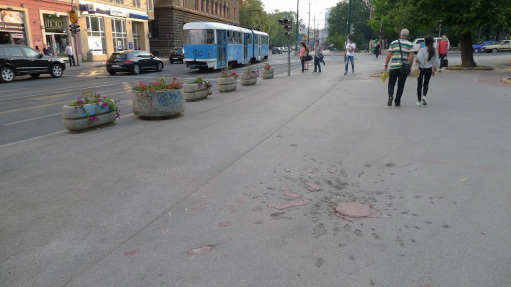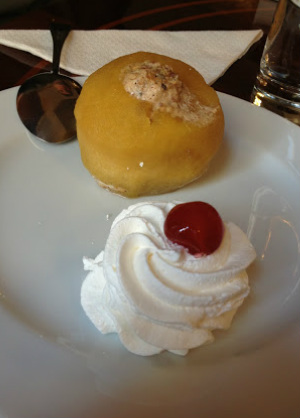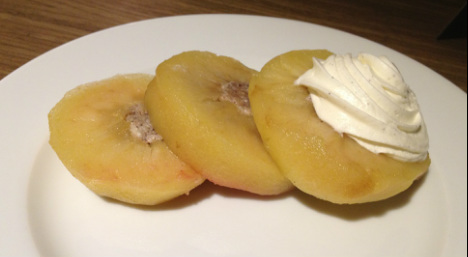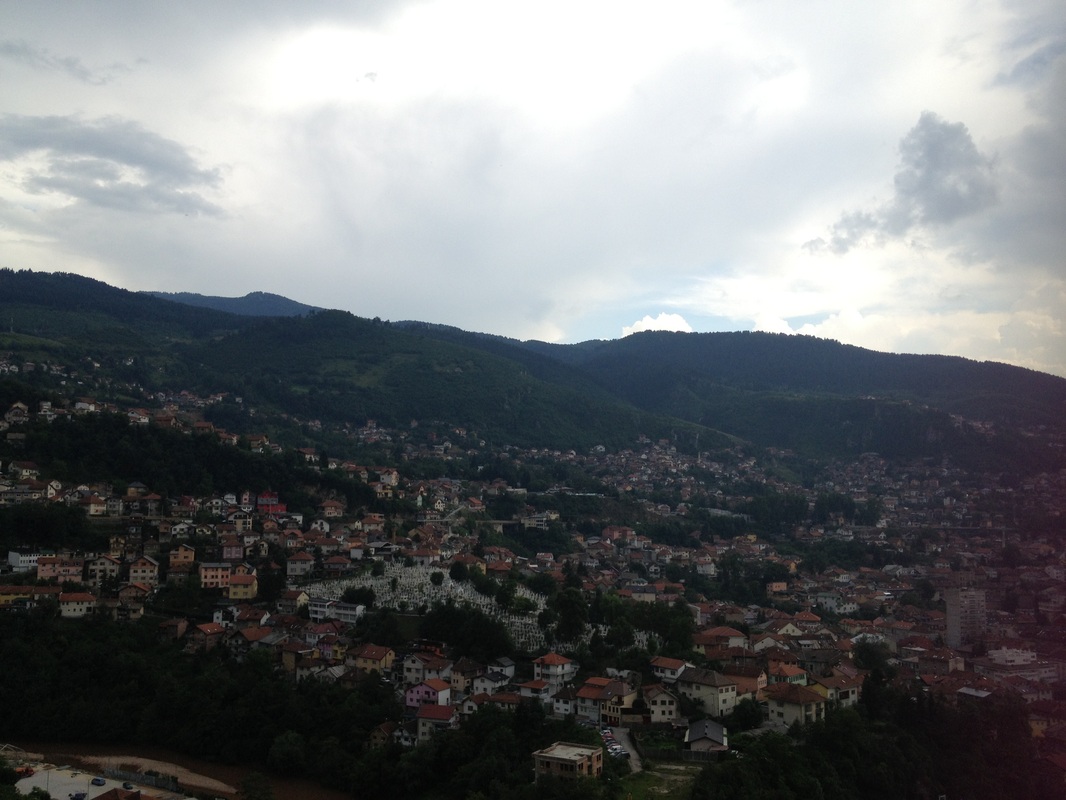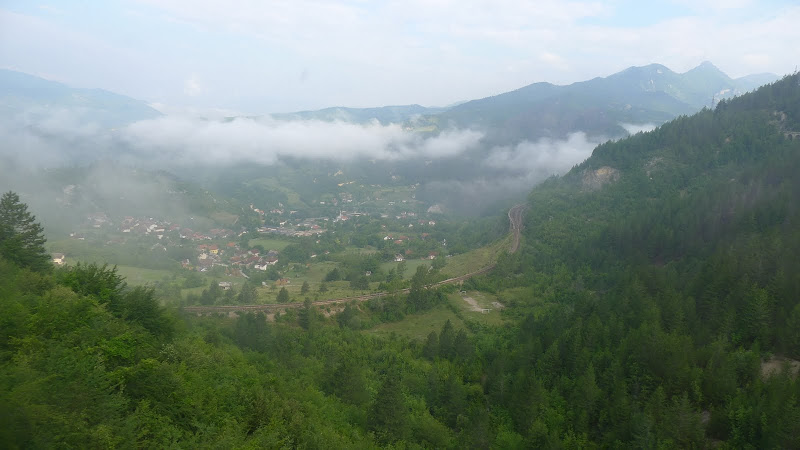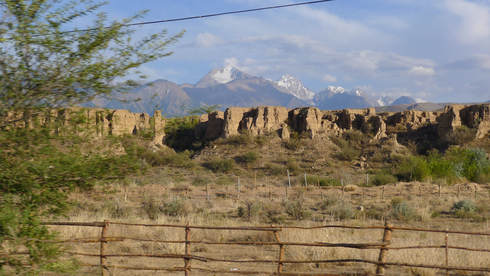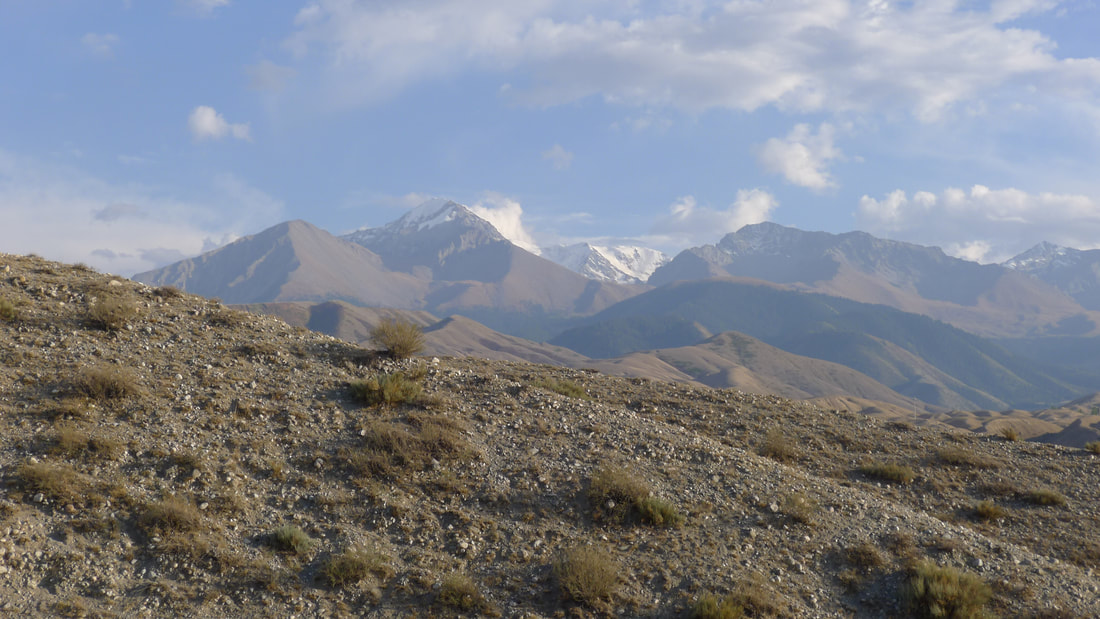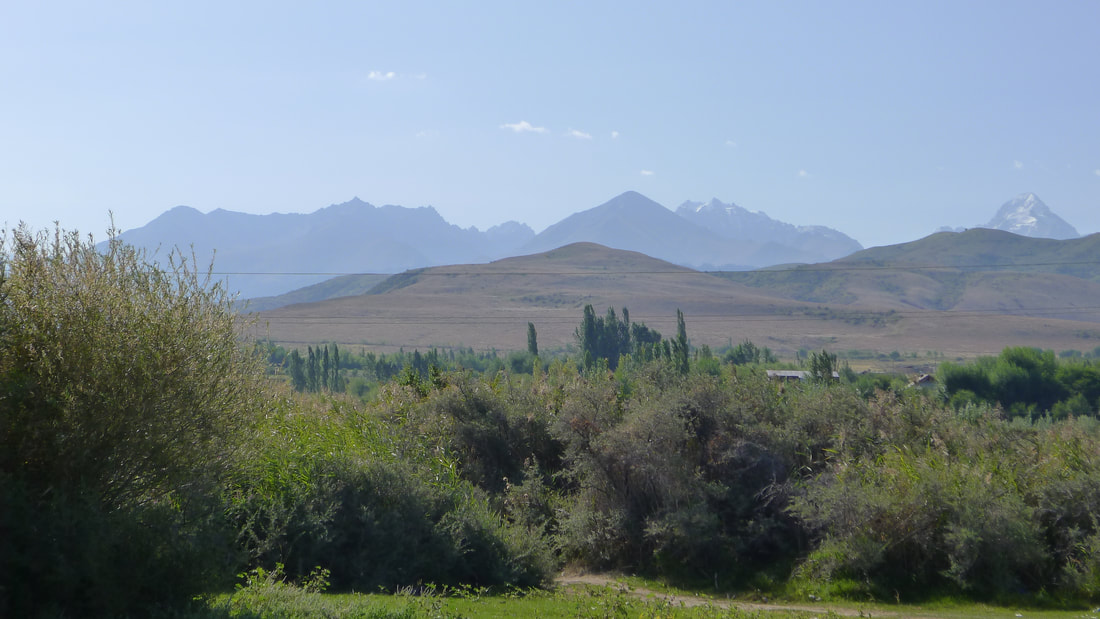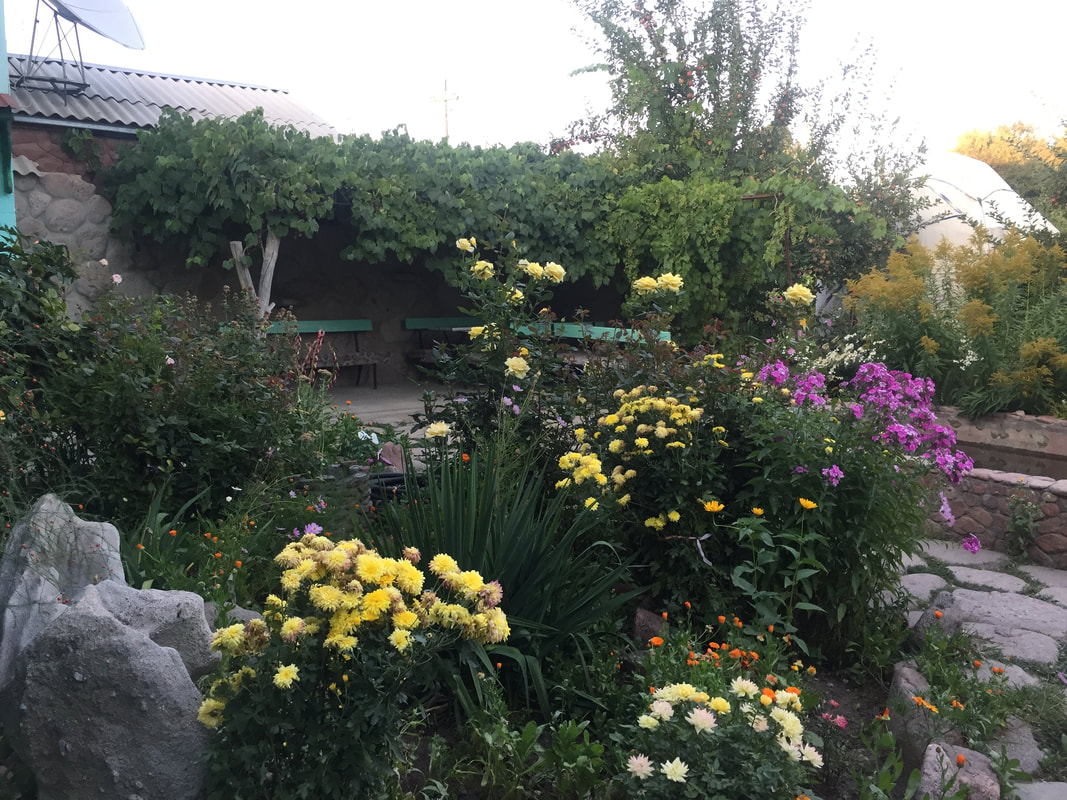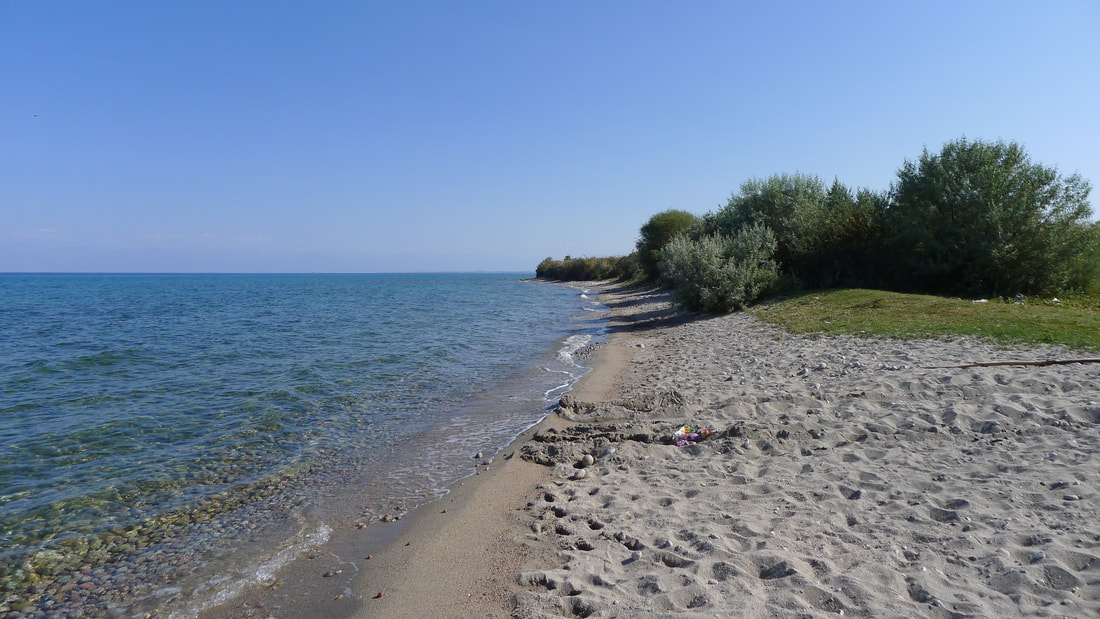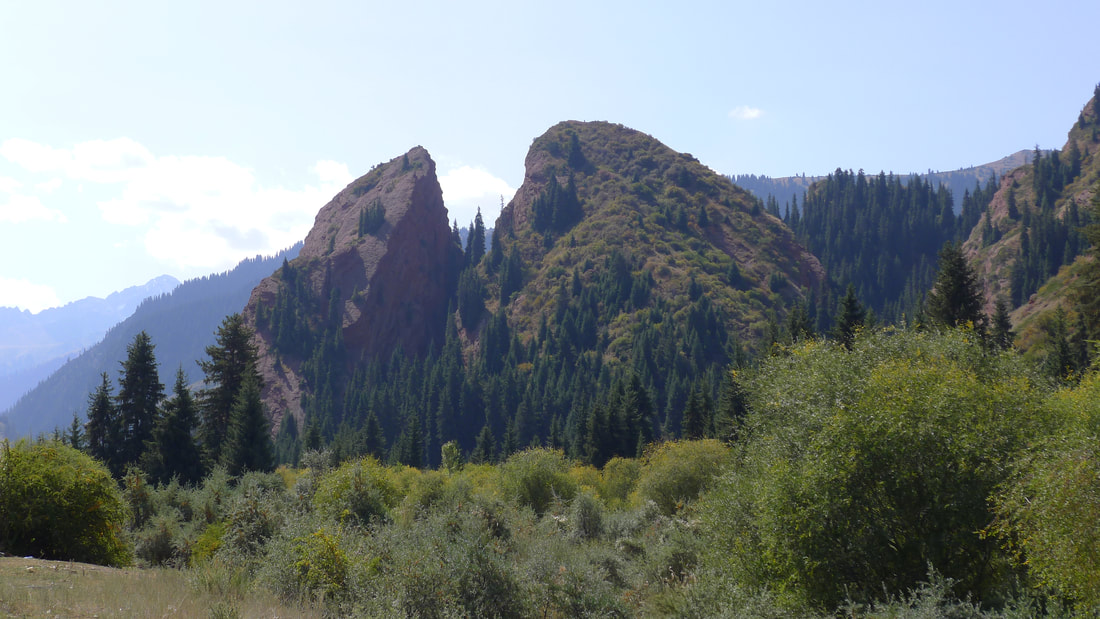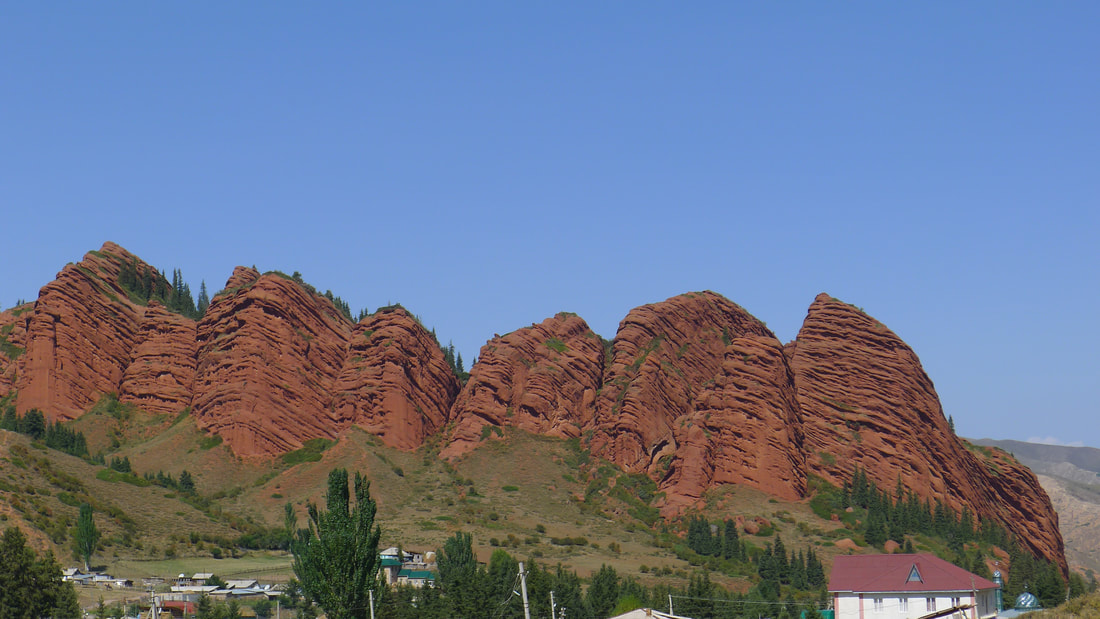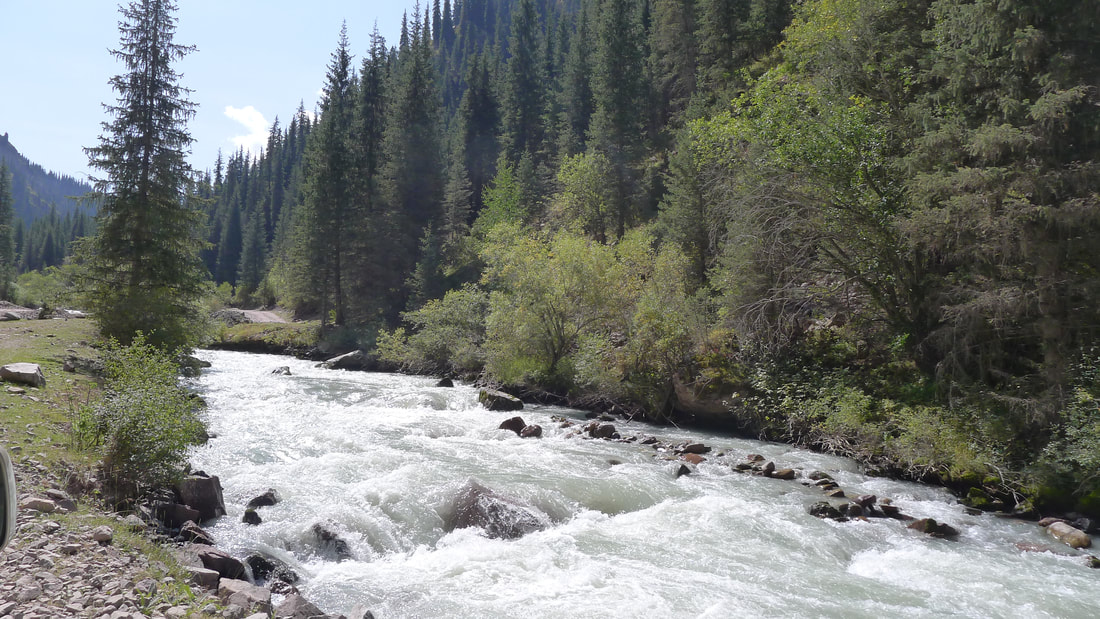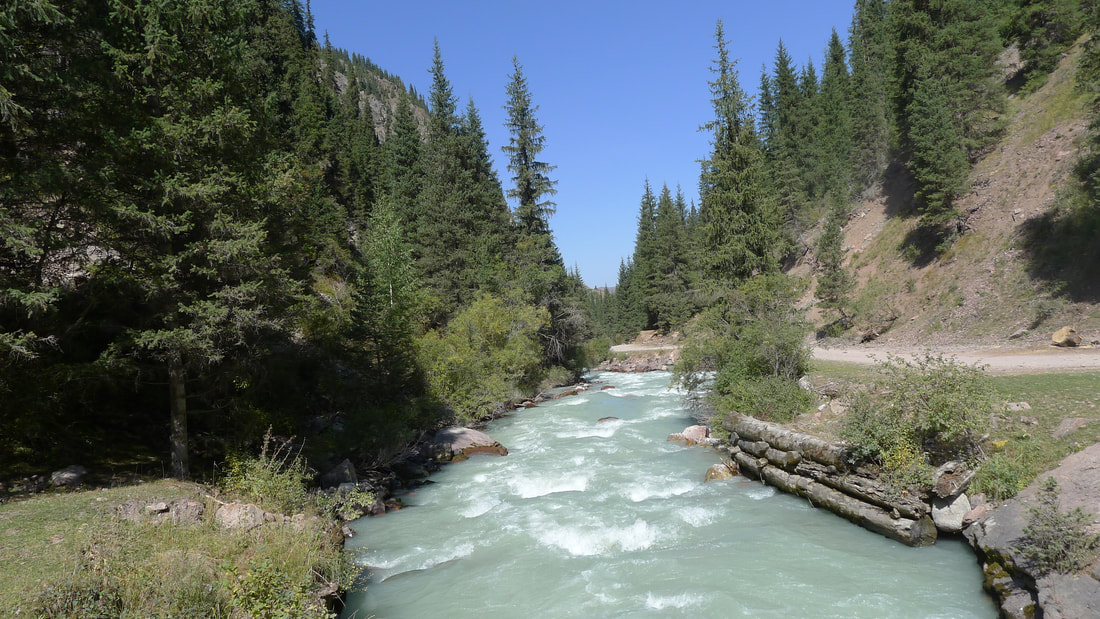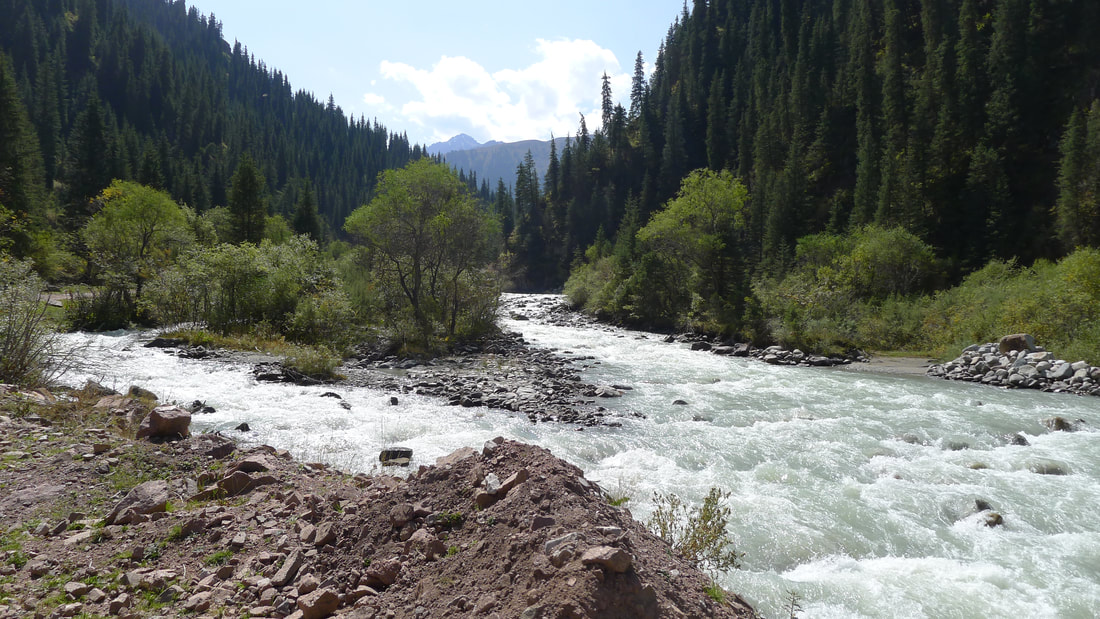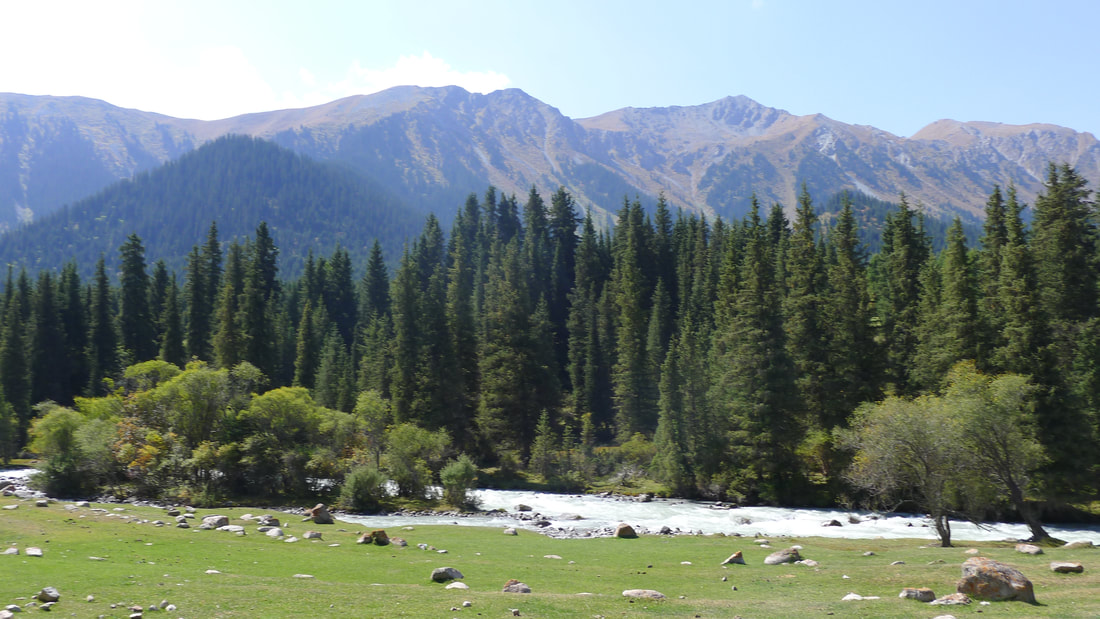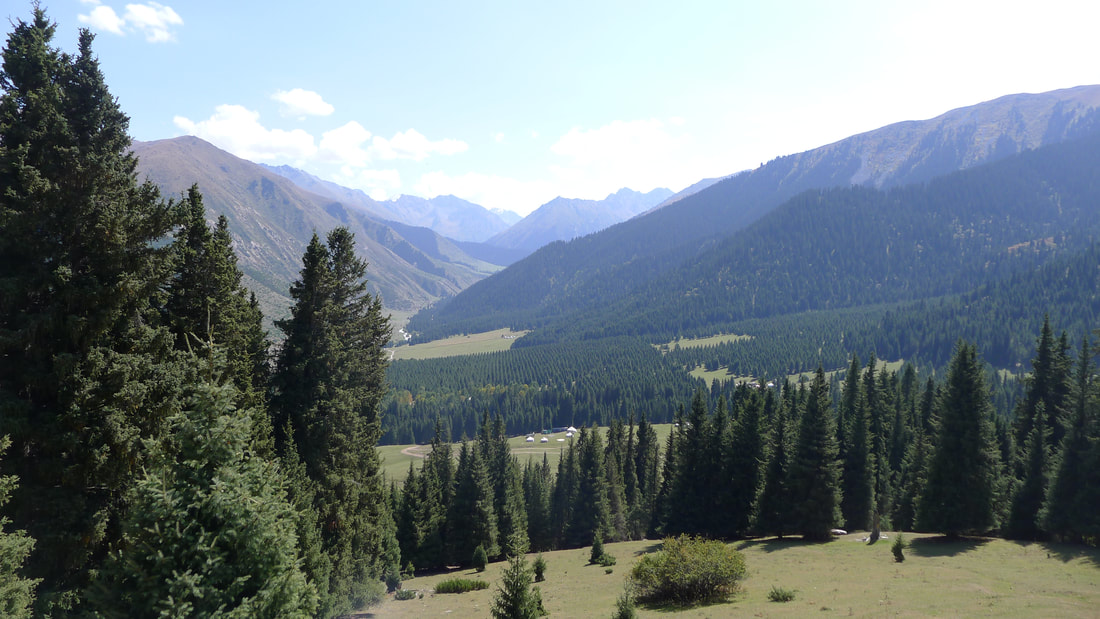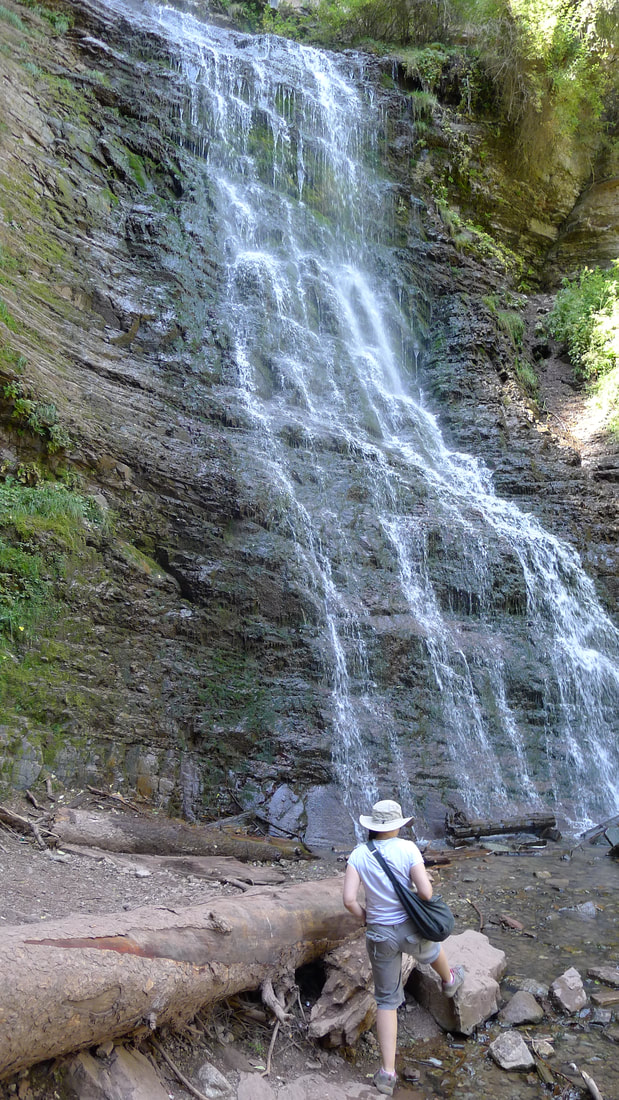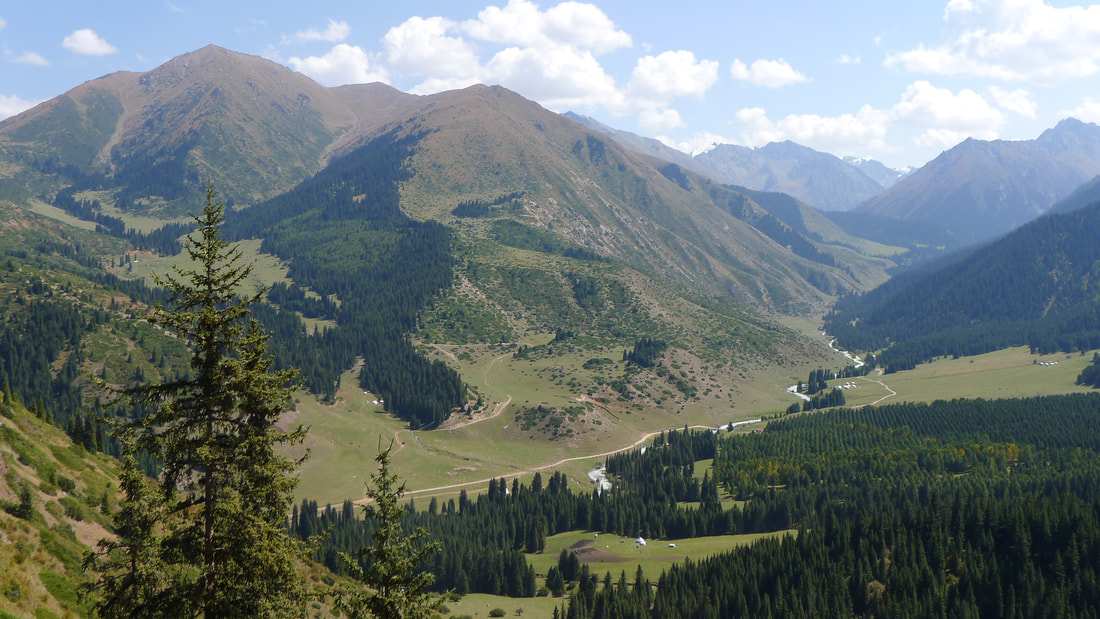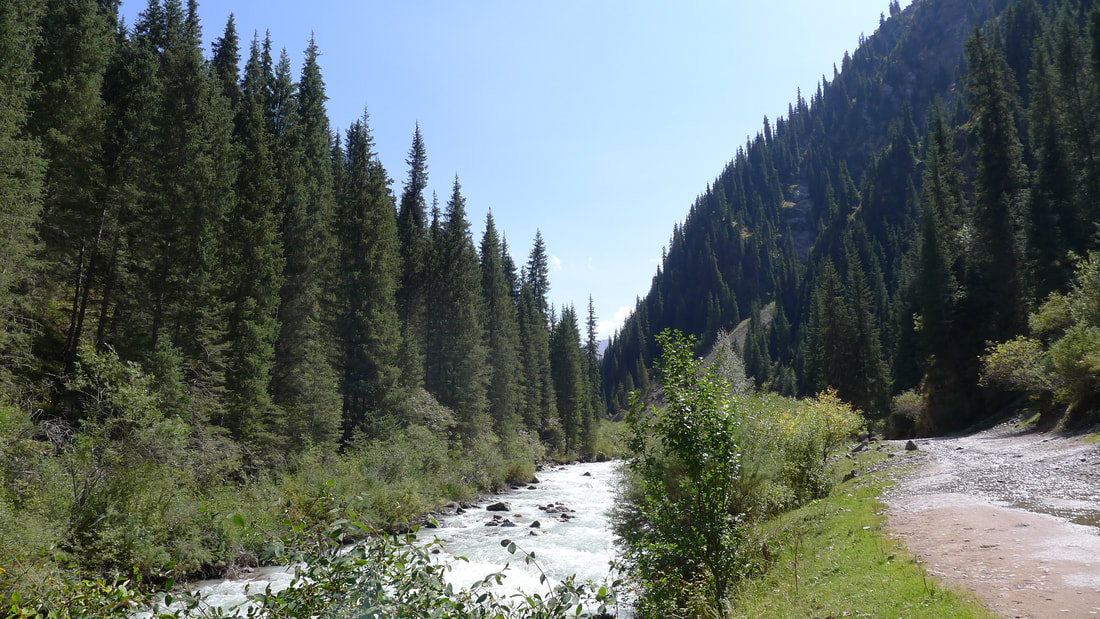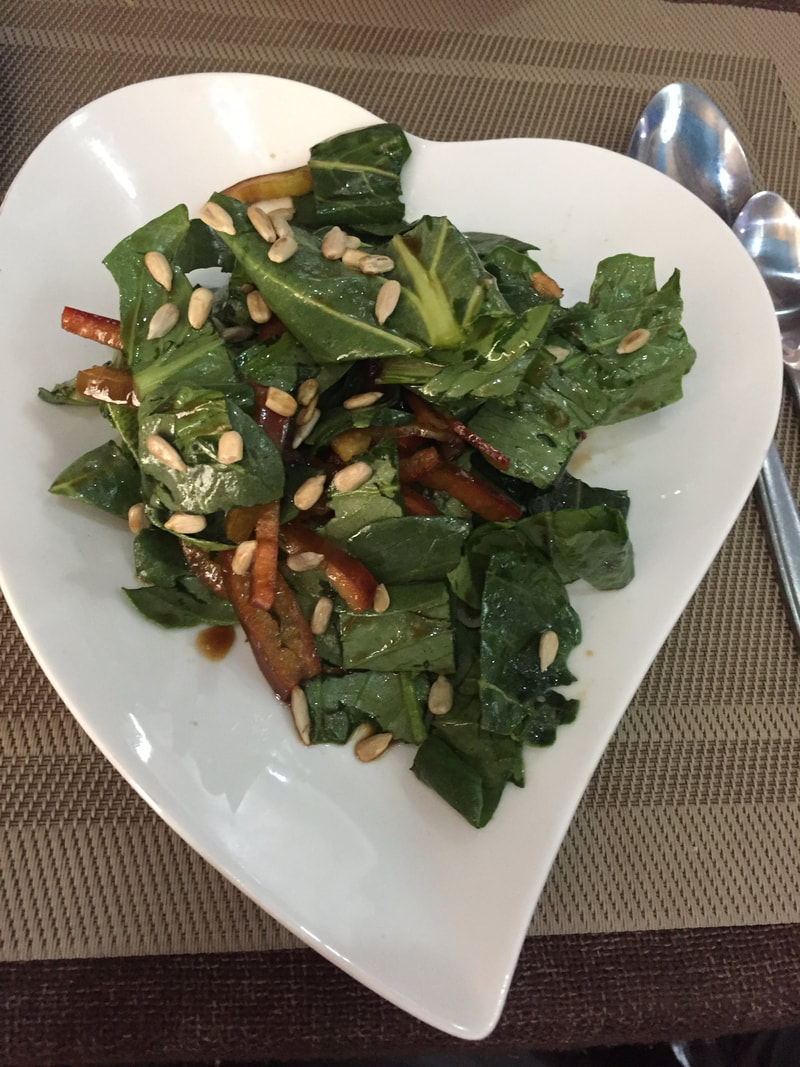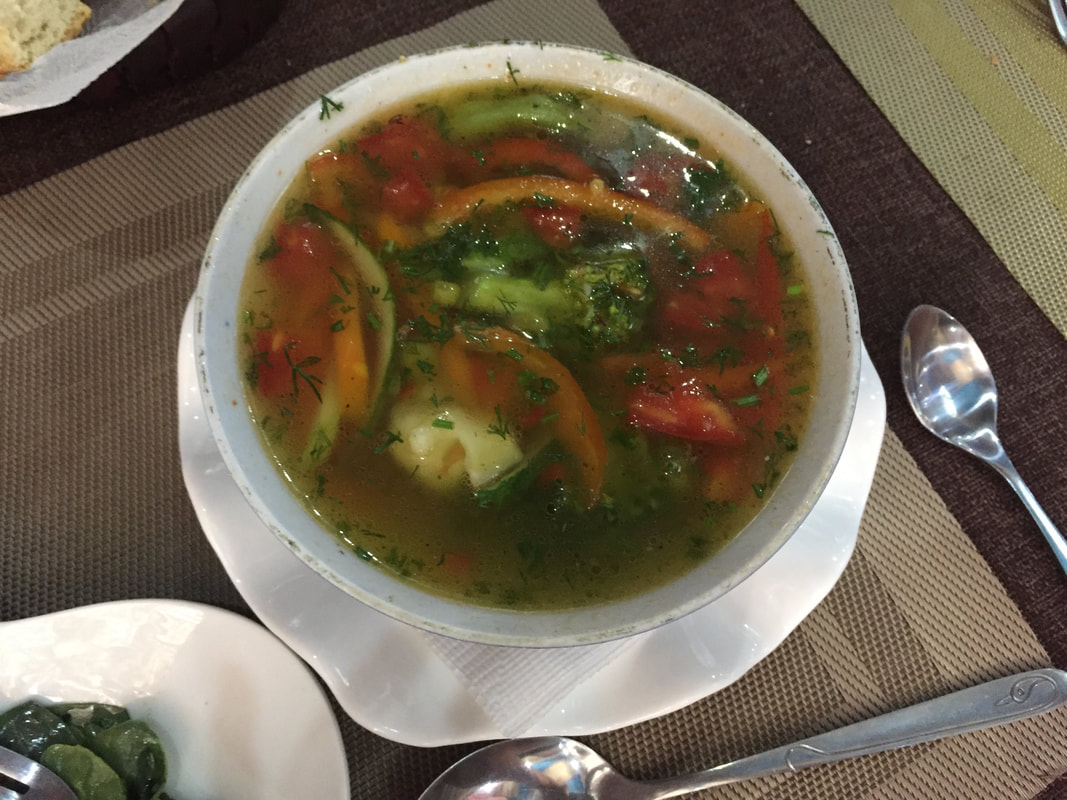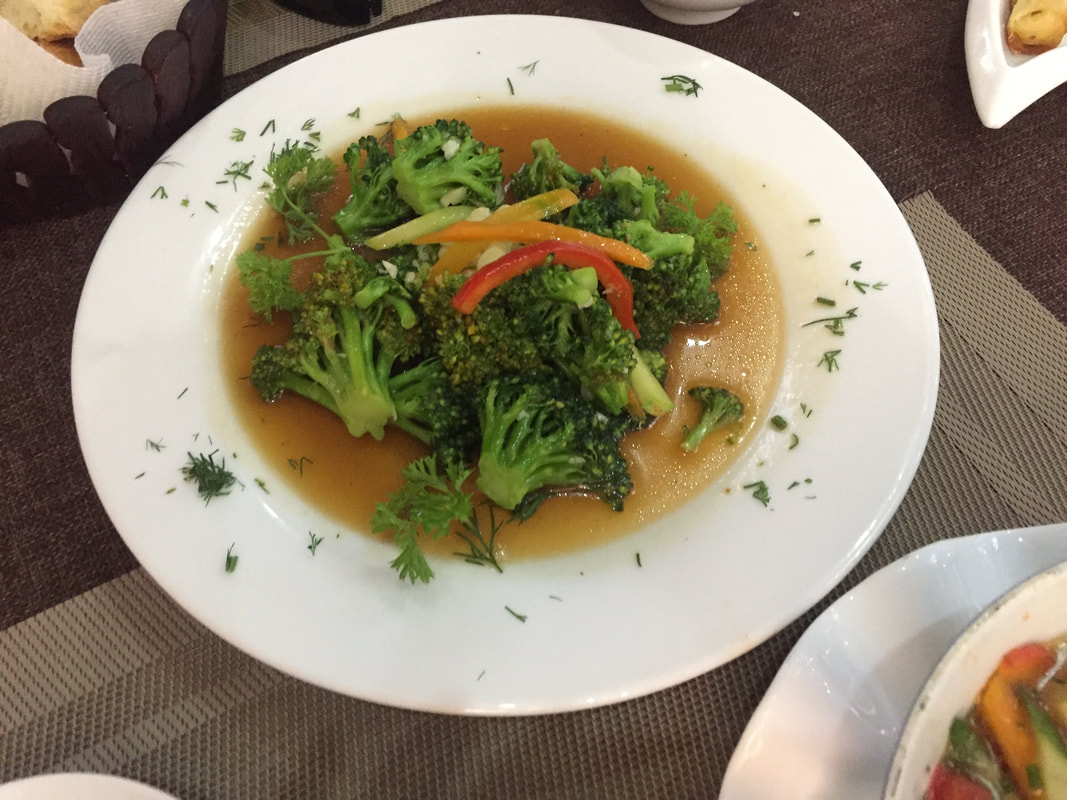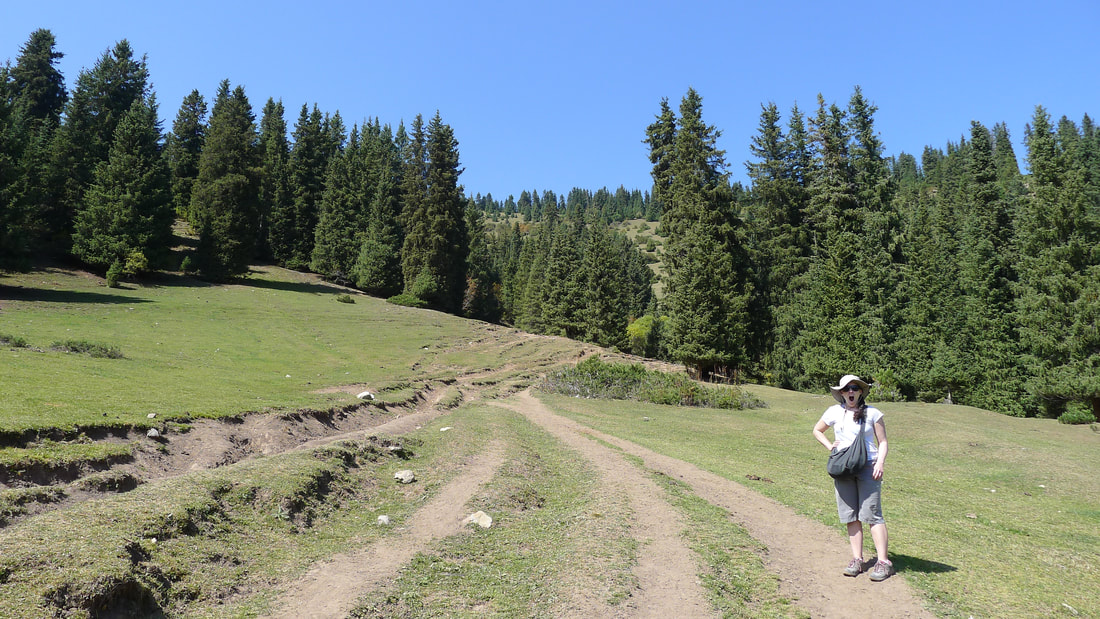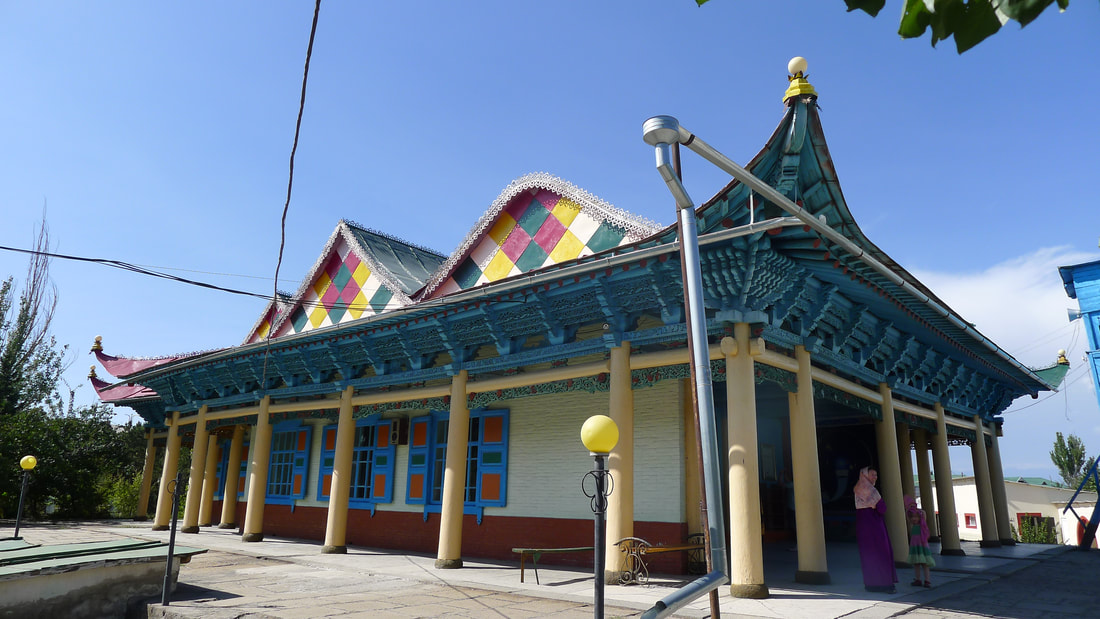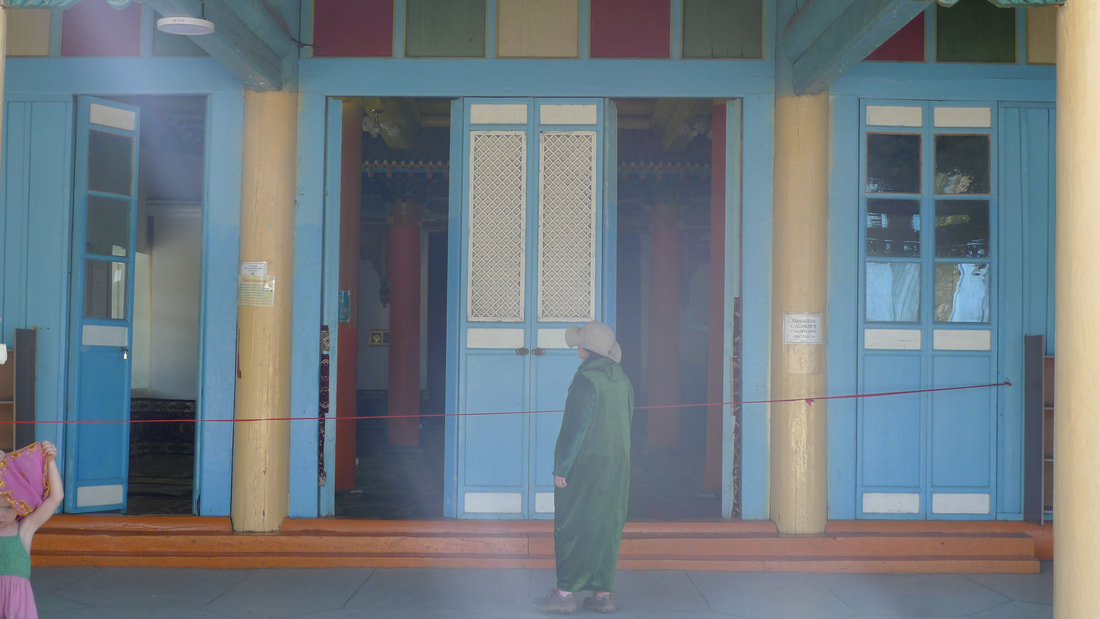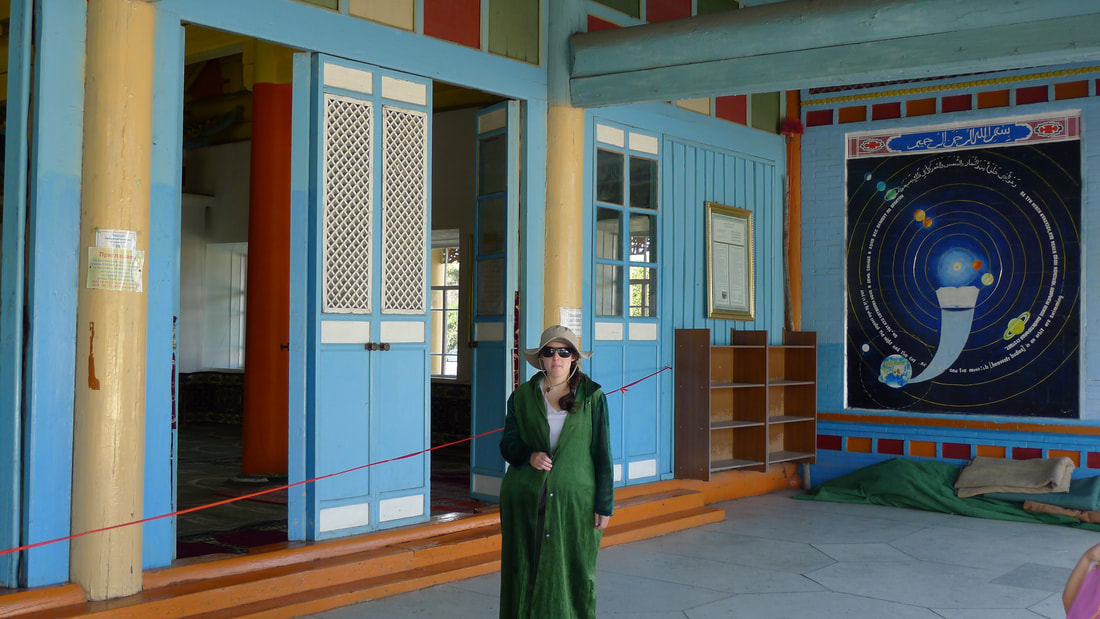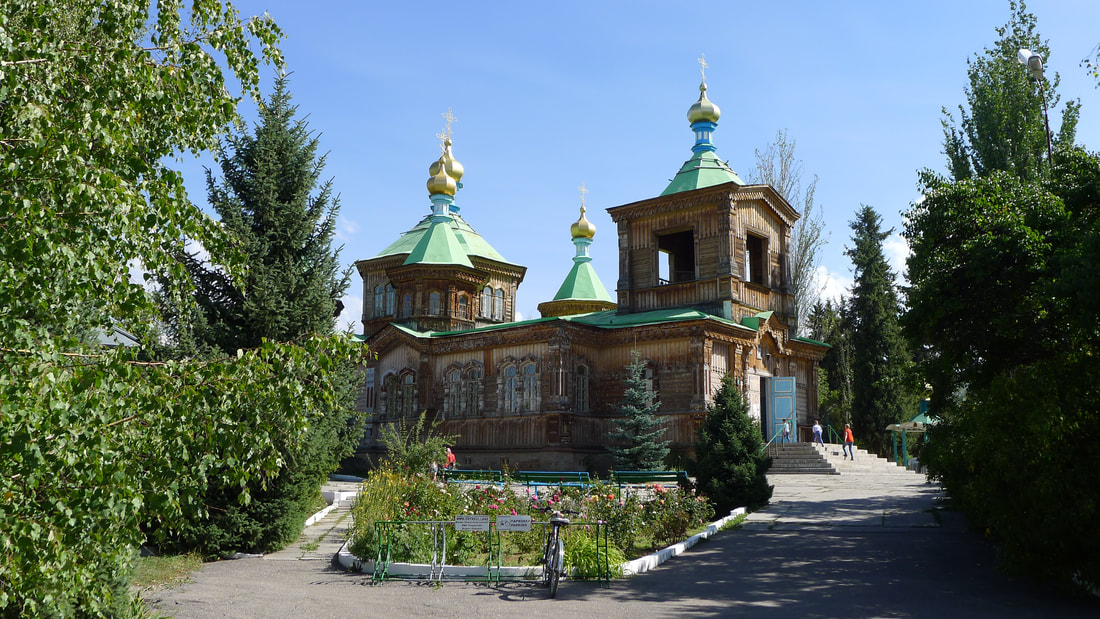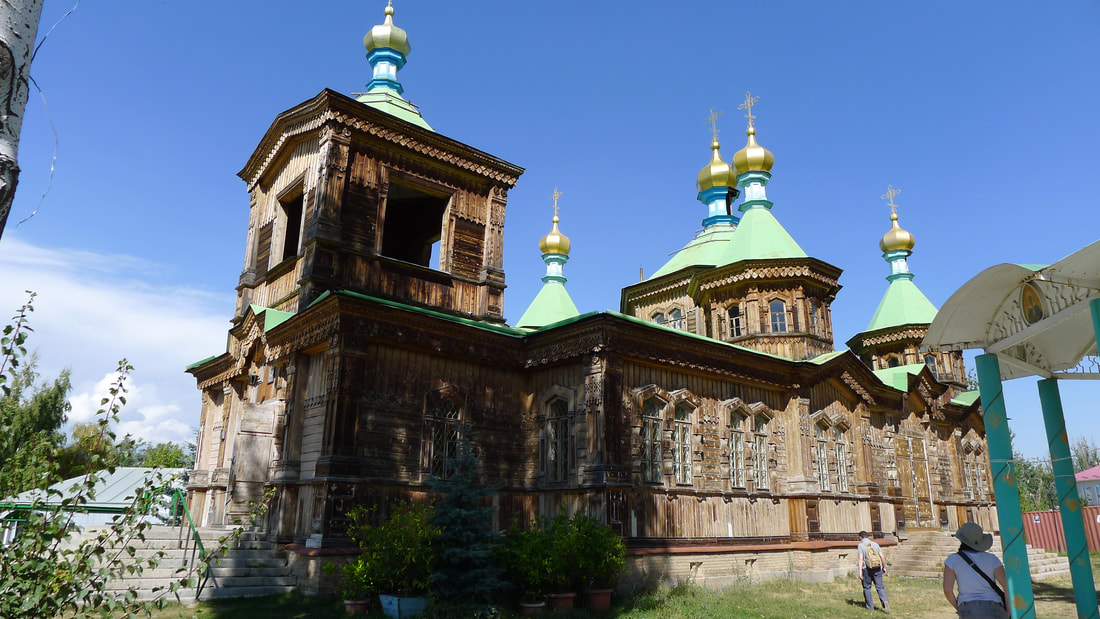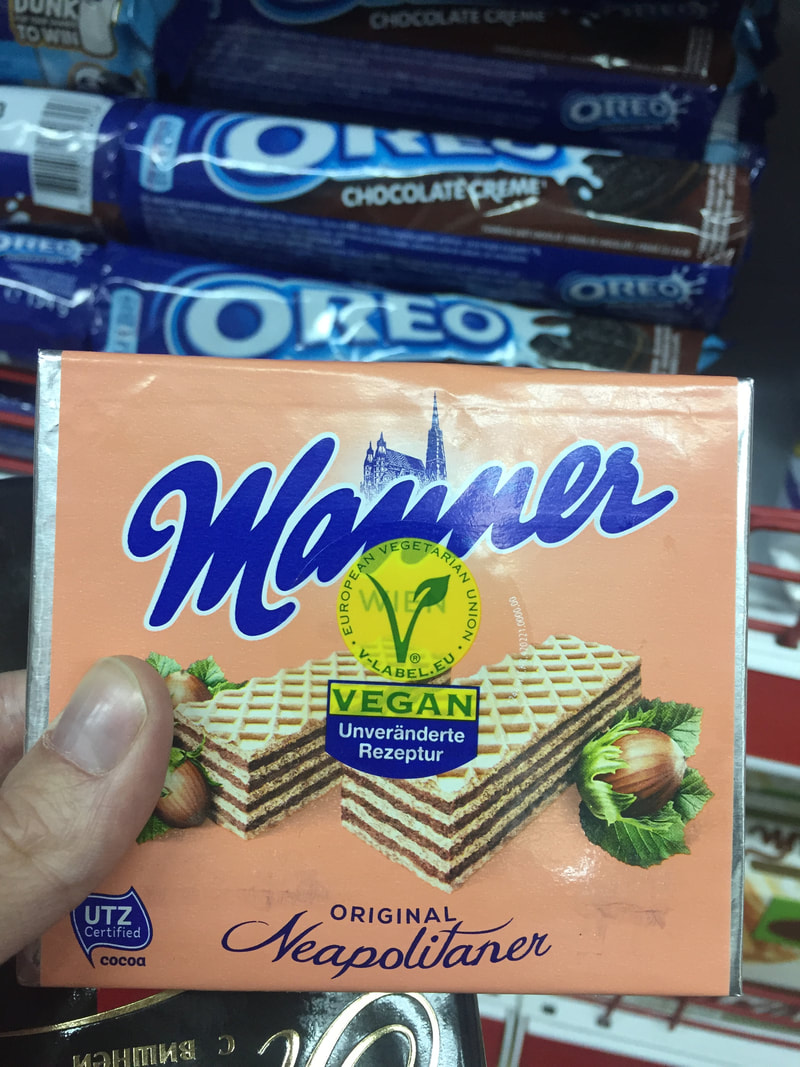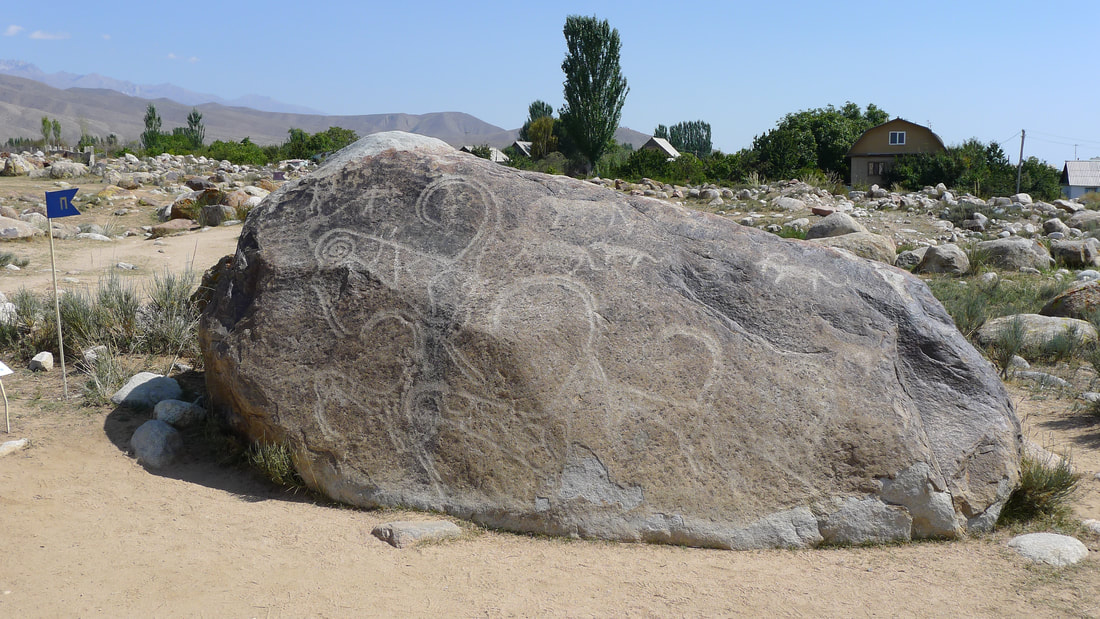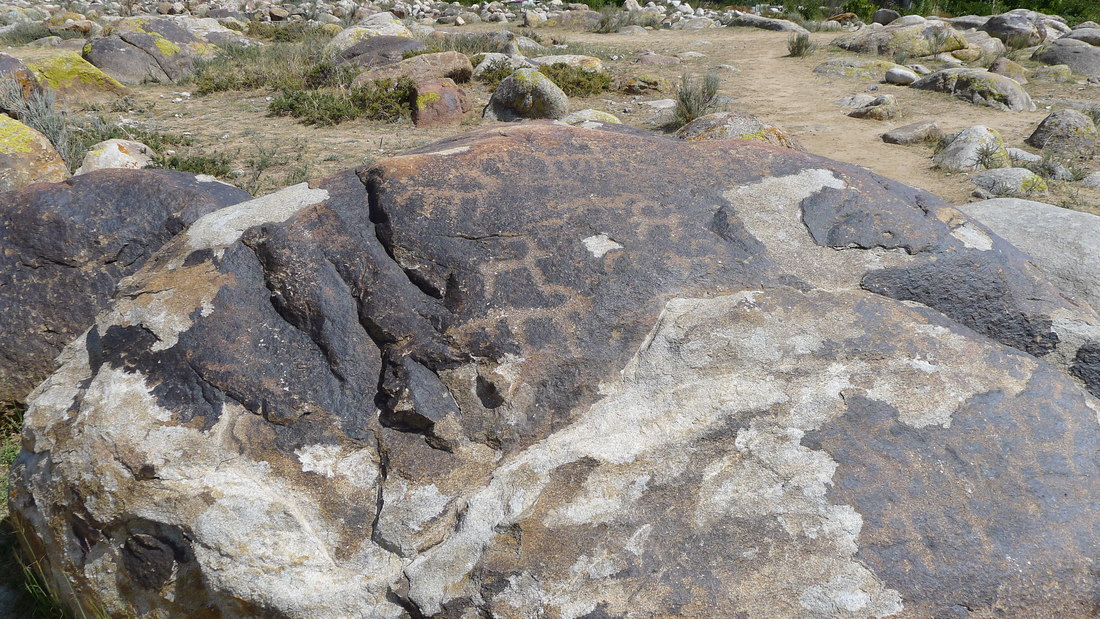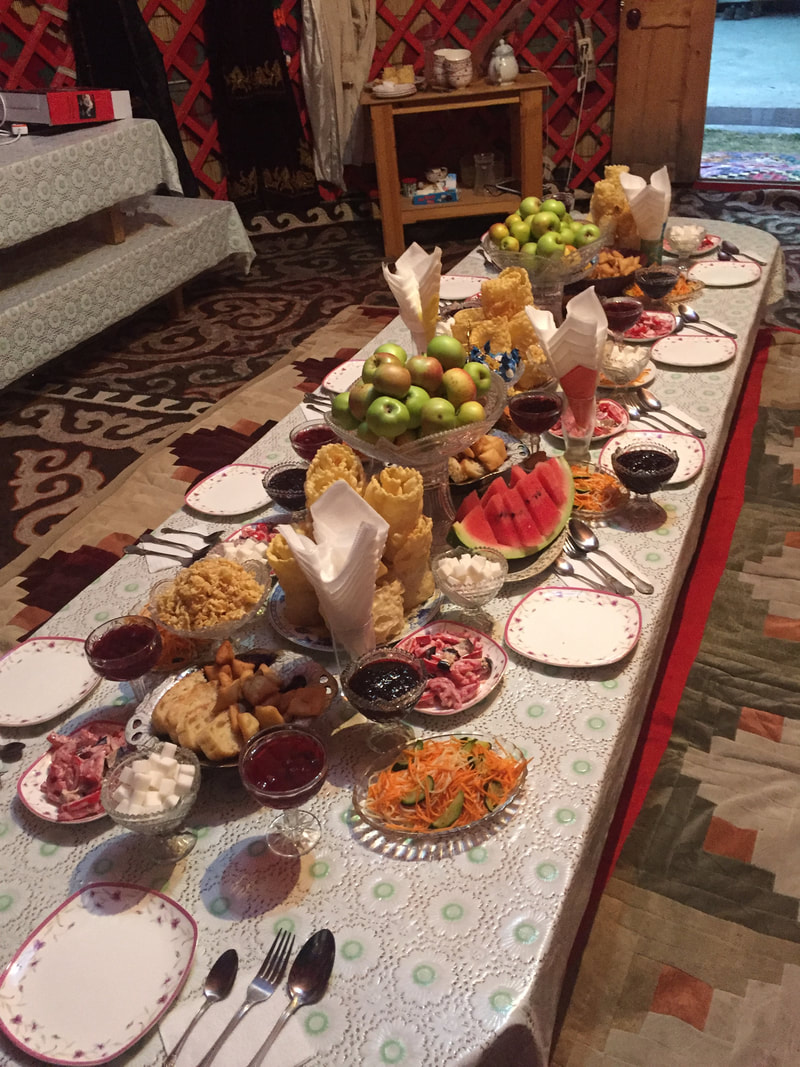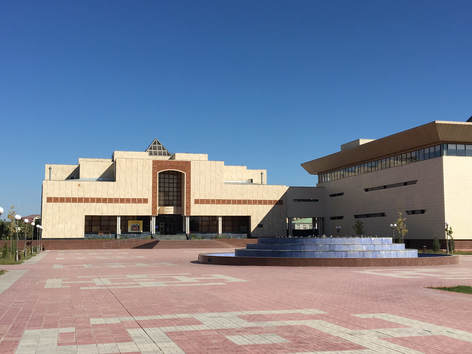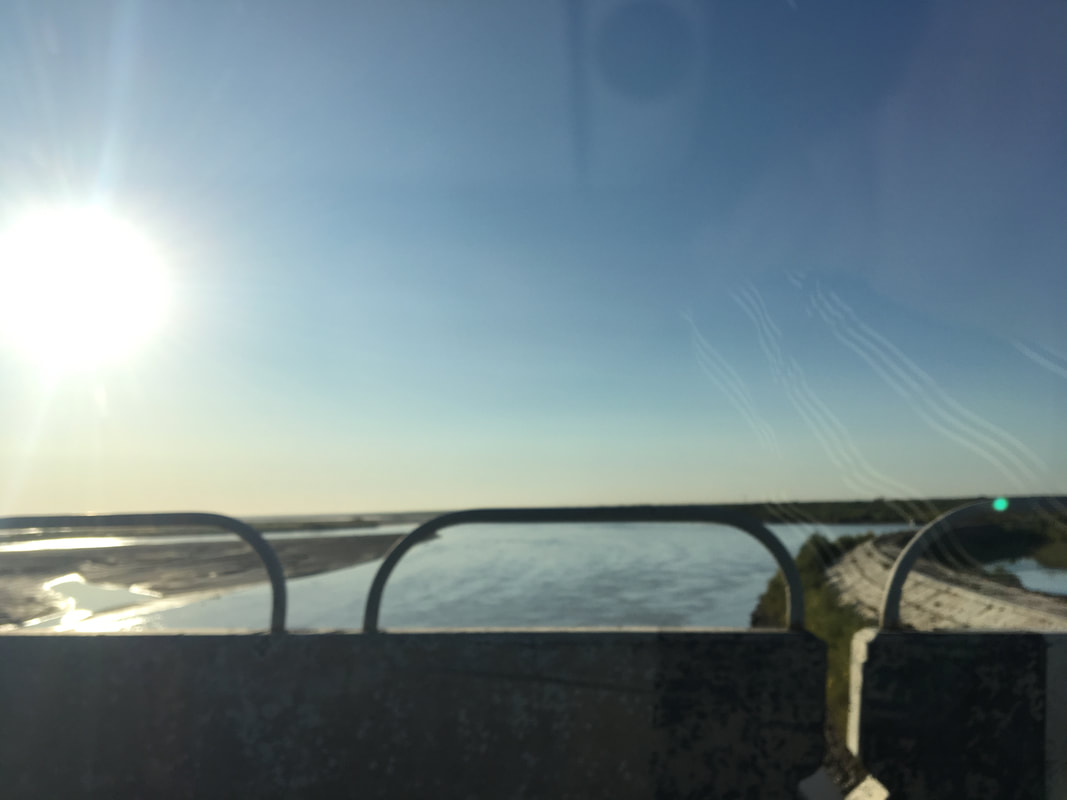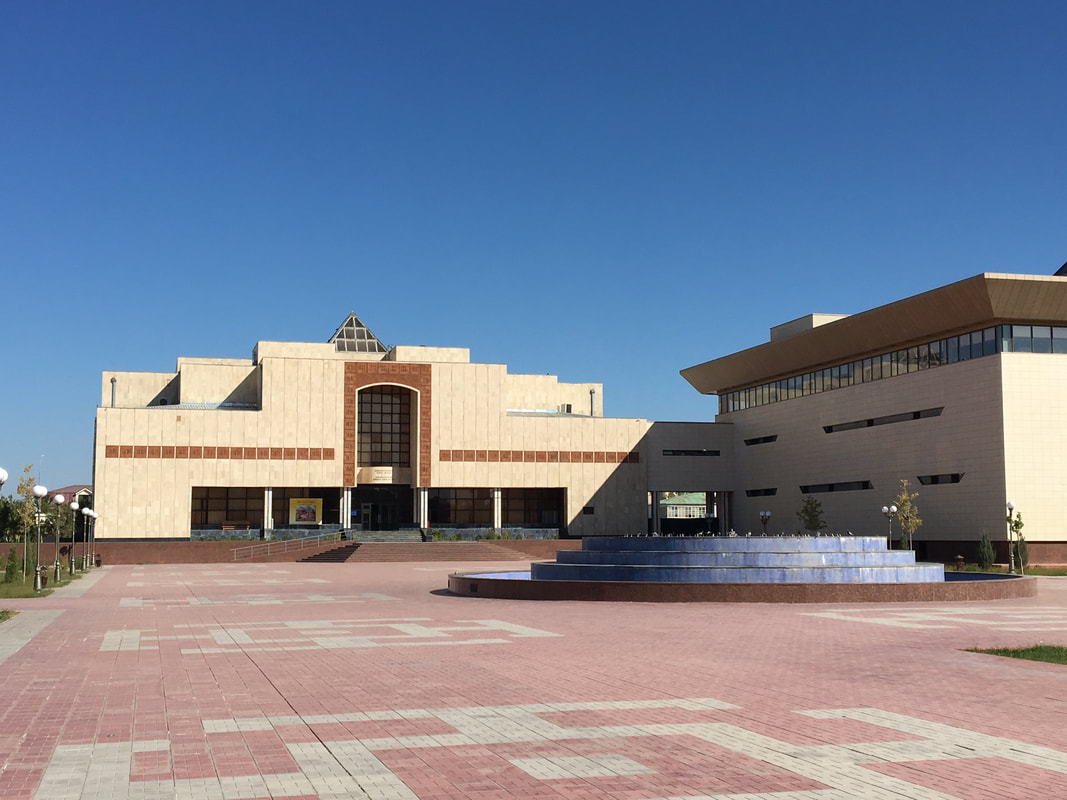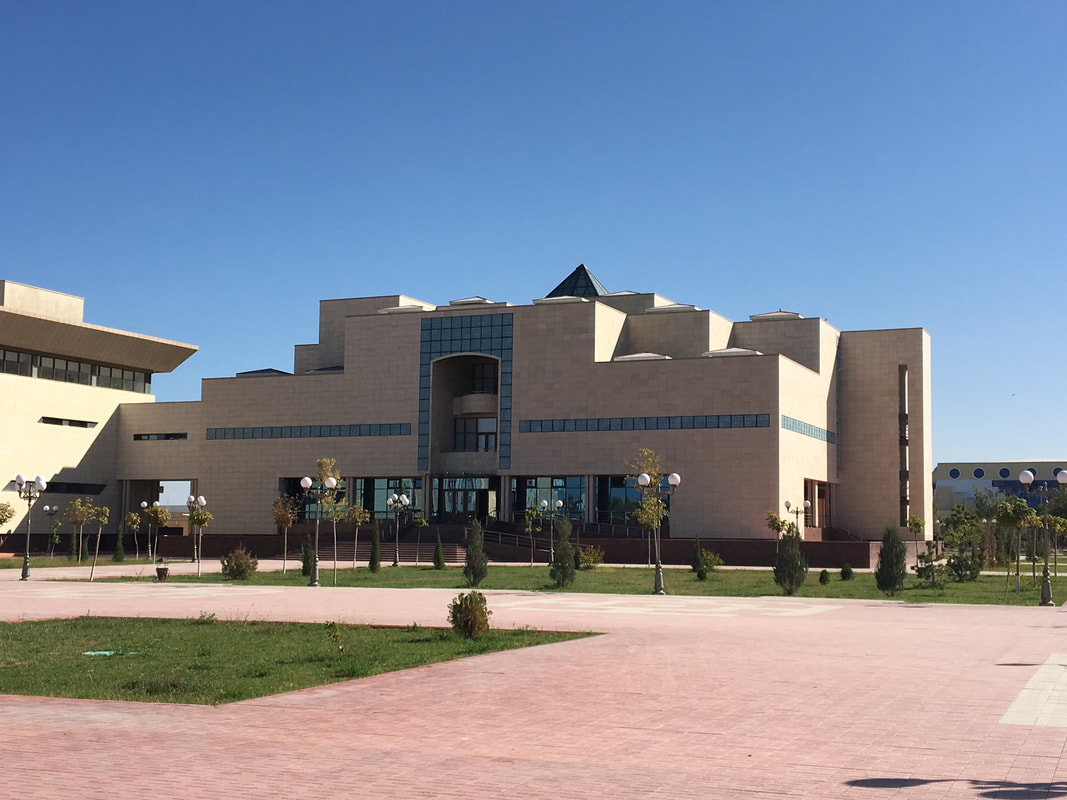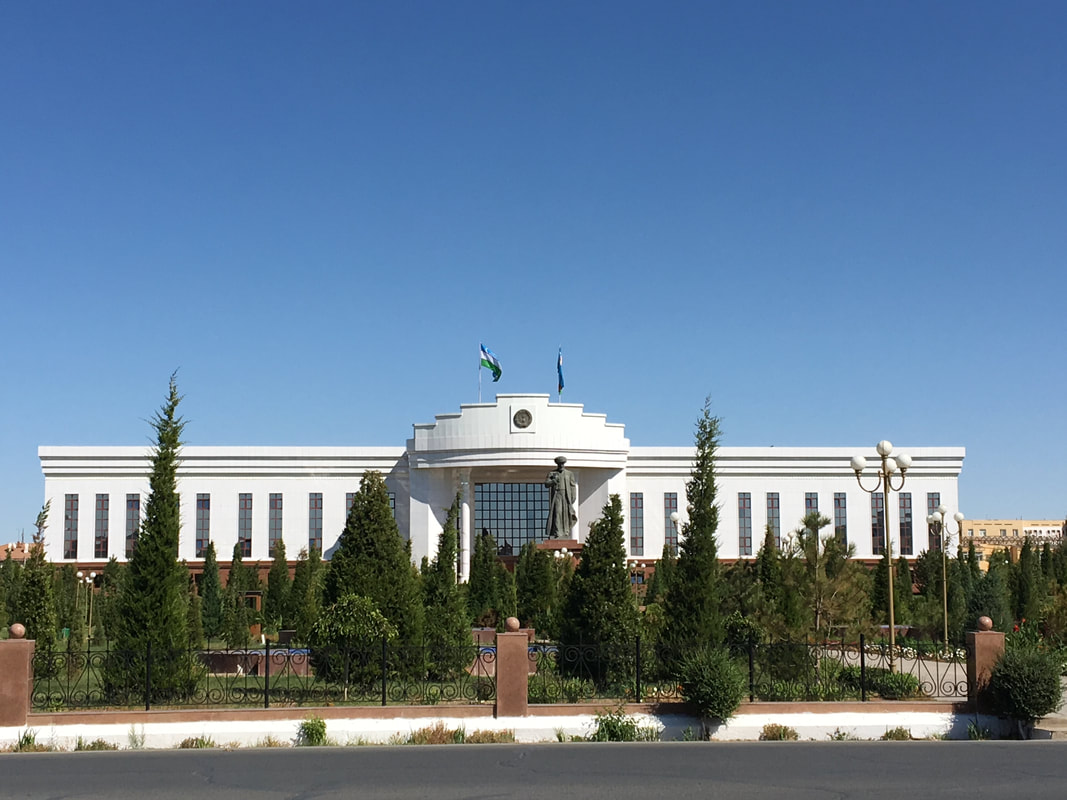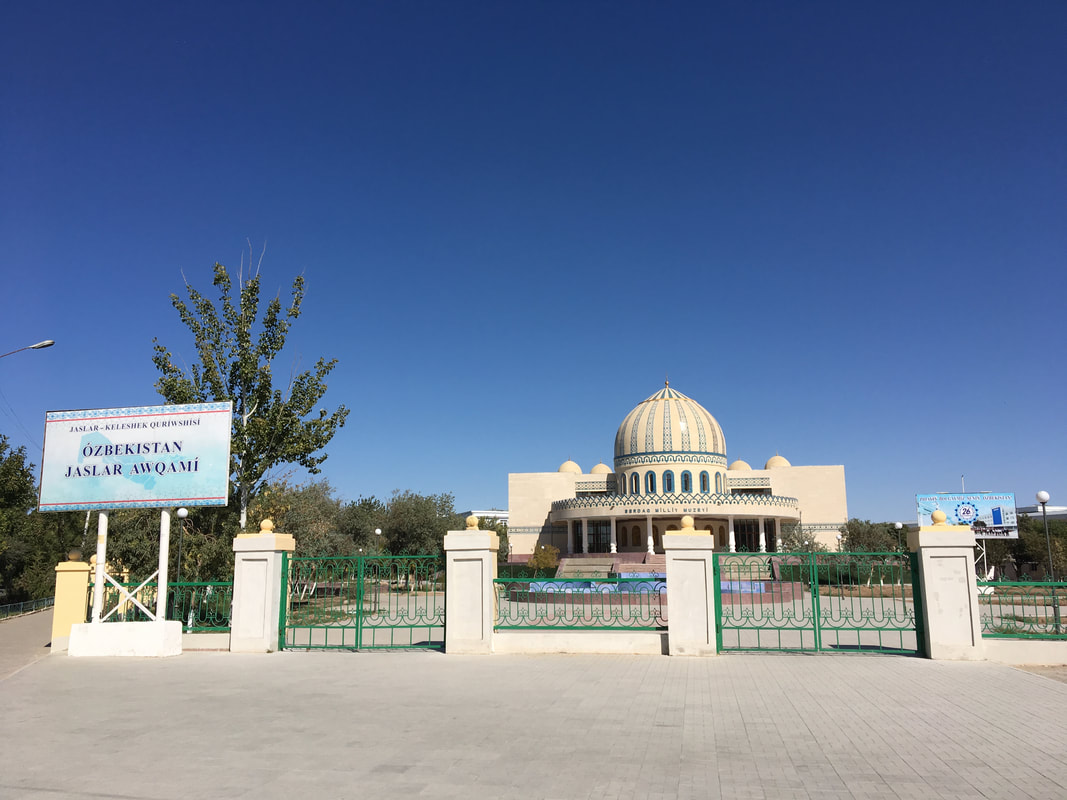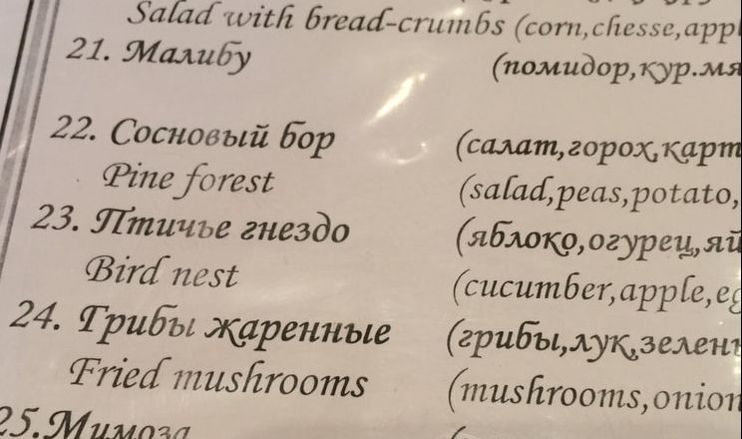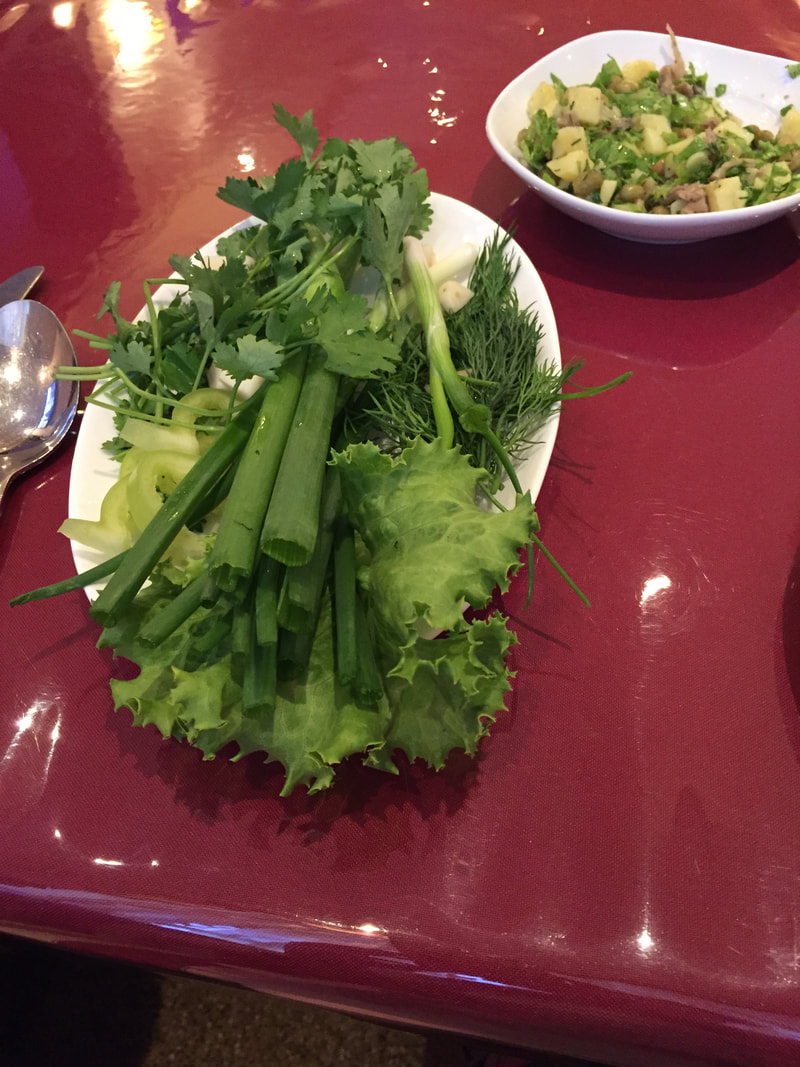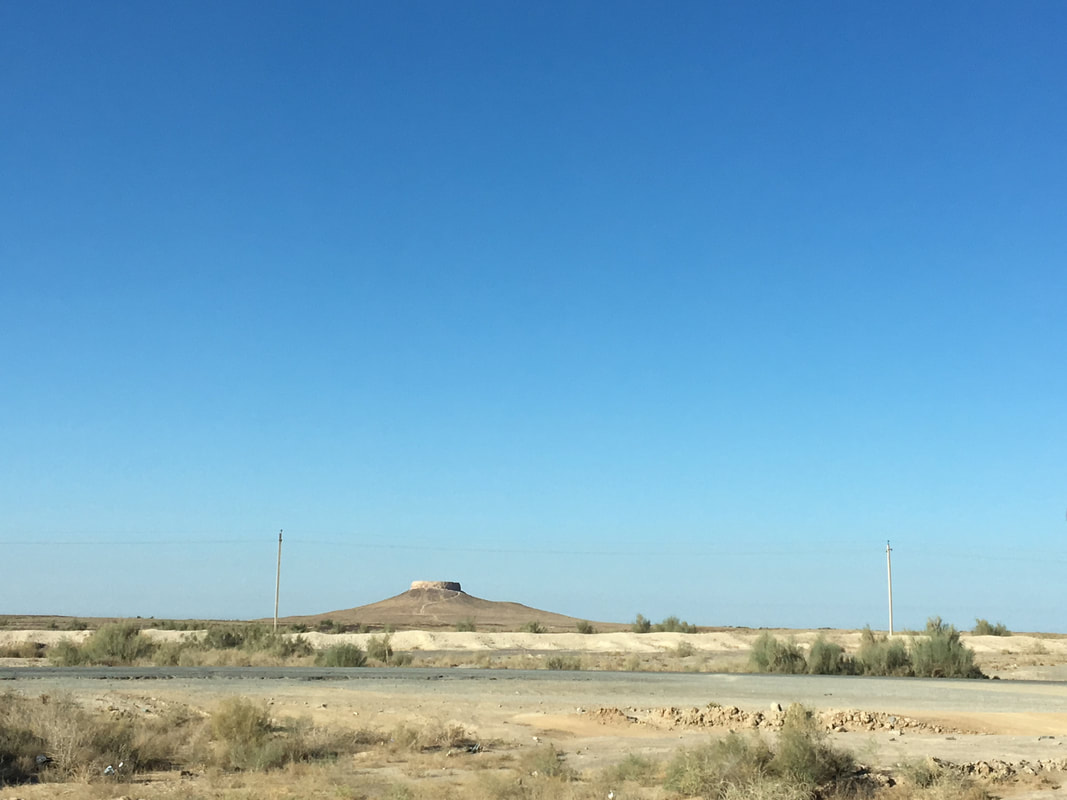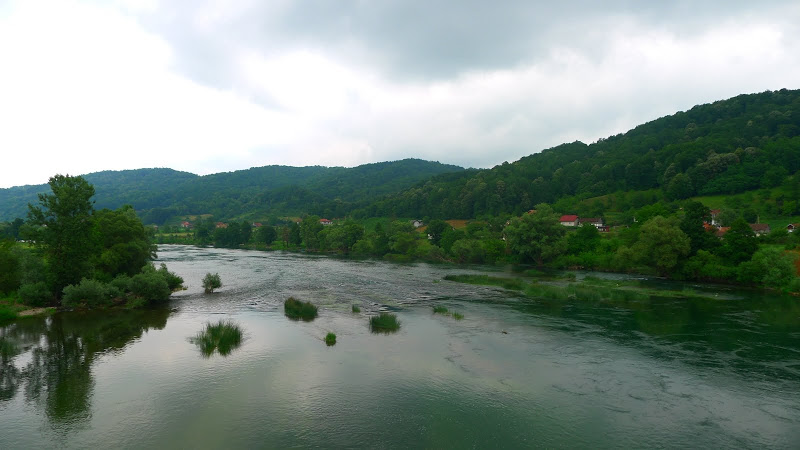 In Which I Spend All Day on a Train: Croatia to Bosniaby Randi / August 29, 2013
In Which I Spend All Day on a Train: Croatia to Bosniaby Randi / August 29, 2013The quaint Old Town felt simple and pleasant, and it was fun to wander around without worrying about getting too lost (not possible). Tiny, cobbled alleyways were that perfect sort for wandering. It was astonishing to consider that the tragic siege of this city by the Serbs occurred relatively recently, and that every local we met lived through it.
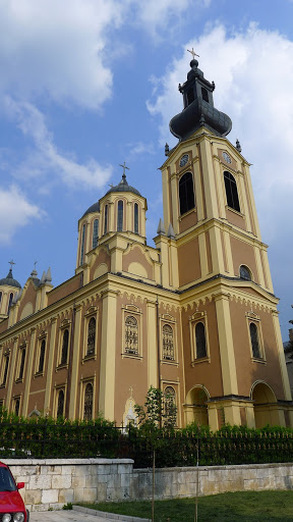 Orthodox Cathedral for Bosnian Serbs
Orthodox Cathedral for Bosnian Serbs
…and a newer Orthodox Cathedral.
Because the siege and the war occurred in recent history, it is the main focus of a visit to Sarajevo. It’s difficult, heartbreaking, but necessary to learn about. I won’t attempt to explain the complicated details of the horrible war as if I were an expert, and instead I urge you to read about it and, if possible, go and speak to locals all over the Balkans.
One such local we met was Samra, an absolutely wonderful guide for Insider City Tours & Excursions. She led a (highly recommended) group tour to the tunnels on the outer edge of the city.
The tunnels were built by the Bosnian Army to connect Sarajevo with territory closer to the mountains, in order to smuggle food, supplies, weapons, and other aid in, and people out.
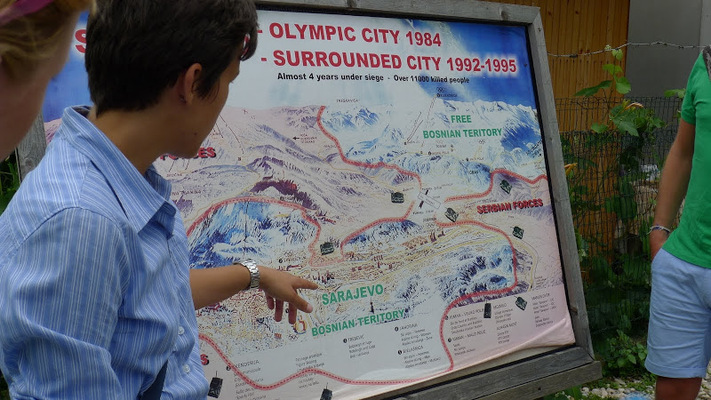 The bottleneck to the left of the red text reading ‘Serbian Forces’ shows the location of the tunnels.
The bottleneck to the left of the red text reading ‘Serbian Forces’ shows the location of the tunnels.
I recommend you take the very affordable and informative afternoon tunnel tour with Insider Tours, which is located right across the street from the Sarajevo 1878-1918 Museum.
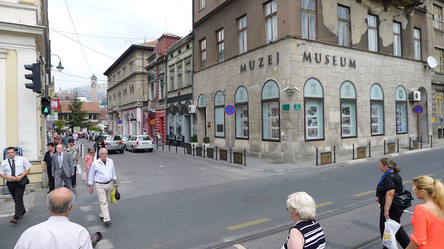 This intersection was where Archduke Franz Ferdinand was assassinated.
This intersection was where Archduke Franz Ferdinand was assassinated.
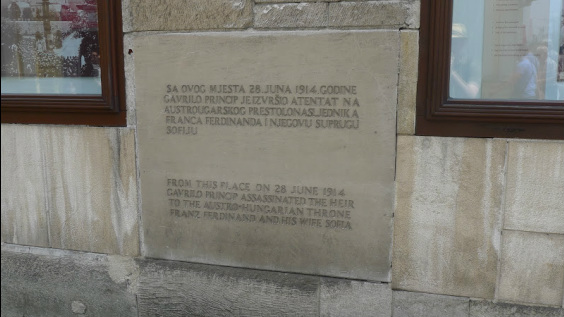 Plaque on the side of the buildings commemorating the assassination.
Plaque on the side of the buildings commemorating the assassination.
However, the tragedy of the 1990s was truly the overriding lesson to learn in Sarajevo. Everywhere you turn, there’s a distressing and emotional reminder of what happened. Shop for produce in the Markale Market in the center of town…
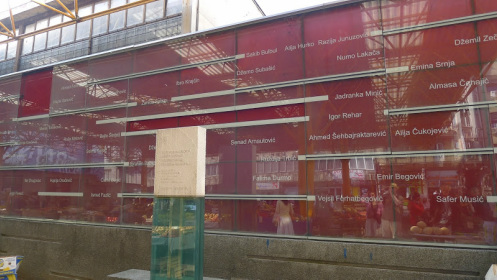 Memorial at the back of the Markale Market
Memorial at the back of the Markale Market
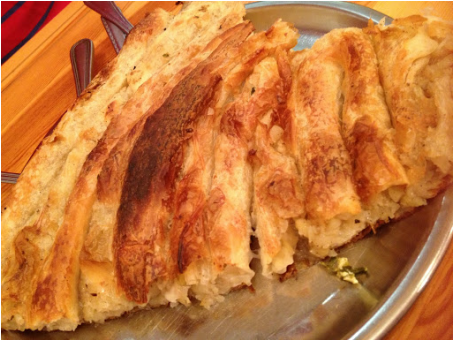 It’s fried flaky pillows of potato! What is not to love?
It’s fried flaky pillows of potato! What is not to love?
The BEST ones are at Buregdzinica Sac, a small corner shop in an alley called Bravadziluk Mali. They sell the huge slabs like slices of pizza, cut off from the circular pies.
– Read about my luck getting vegan Italian food at the only restaurant open one Sunday night, TAVOLA!
– Read about the amazing dinner (and dessert!) at KARUZO, a fancy vegetarian restaurant that focuses all of its attention on your experience.
– Read about the Middle Eastern food from ZAATAR & CO. in old town!
Although I’m making it seem like the only happy things were food-related, that’s just me. The city was full of wonderful surprises, from the friendly and welcoming locals to the beautiful views:
Sarajevo is a really special city. If you are taking a trip to the Balkans, I urge you to carve out time here. I was very wary of swapping time on the Dalmatian coast to come here instead, but I’m so glad I did.


